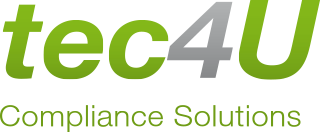In practical business operations, one recurring question regarding the implementation of regulations such as REACH, RoHS, TSCA, and others is:
How can Material Compliance (MC) be integrated as a product attribute during the product development process (PDP), and how can compliance ultimately be demonstrated or measured?
When it comes to verifying product dimensions, for example, numerous measurement methods are available. The task of quality assurance is to select and apply the method that reflects the current state of the art.
Similarly, there is a recognized state-of-the-art approach for verifying material compliance: DIN EN IEC 63000.
It is evident that not every product can undergo chemical analysis before it enters the market, since such testing is destructive. As a result, 100% testing is not feasible, as it would eliminate the availability of salable products. Even batch-based chemical testing is typically not practical due to economic and logistical constraints. Therefore, DIN EN IEC 63000 defines four elements that can be used to demonstrate material compliance:
- Technical assessment (e.g., component risk assessment – how likely is the presence of a restricted substance? For instance, organic compounds in metals are not plausible), and/or
- Supplier declarations (confirmation that the amount of restricted substances used is within applicable limits), and/or
- Material declarations (detailed substance data and applicable exemptions), and/or
- Analytical test results.
All procedures and results used to demonstrate compliance must be properly documented and regularly updated.
Supplier declarations must always refer to specific parts or components, and the reliability of the information must be verified—for example, through supplier assessments and component risk evaluations.
If no reliable information is available, analytical testing is required—which may also be performed by the supplier.
From a technical perspective, implementing material compliance is primarily a matter of data management and risk assessment, where the most resource-intensive aspect is typically gathering MC data from suppliers.
tec4U-Solutions can support you in this process:
- Structuring your processes to be IEC-compliant
- Optimizing your material data research using specialized software
- Managing supplier communication through our data service
- Training your staff to ensure legally compliant implementation
Have questions about our IEC 63000 support services?
If you have any questions regarding our IEC 63000 support services, please do not hesitate to contact us. We look forward to hearing from you.
